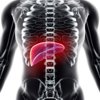Fritextsökning
Artiklar per år
Innehållstyper
-

Assignment: Facilitate the retention of foreign researchers
A newly appointed public inquiry is to develop measures to make attracting and retaining foreign doctoral students and researchers in Sweden easier.
-

Beta-blockers are often given unnecessarily, a study finds – “This will affect future practice”
Patients who have suffered a minor heart attack do not benefit from beta-blockers, according to a major new study that may change guidelines for cardiac care.
-

Recipharm divests five Swedish plants
Swedish contract manufacturer Recipharm is selling its facilities in Solna, Strängnäs, Höganäs, Karlskoga and Uppsala OTC Development to US private equity company Blue Wolf Capital Partners.
-

Settlement of cancer allegations against blockbuster drug
French pharmaceutical company Sanofi has reached a principal agreement in the US on around 4,000 of the cases in which its now withdrawn blockbuster heartburn drug Zantac allegedly had caused cancer.
-

Uppdraget: Gör det lättare för utländska forskare att stanna
En nytillsatt utredning ska ta fram åtgärder för att göra det lättare att attrahera och behålla utländska doktorander och forskare i Sverige.
-

Ny chefredaktör på Läkartidningen
Åsa Uhlin har utsetts till ny chefredaktör på Läkartidningen efter avgående Pär Sandell.
-

Radioactive tracer to measure effect of drug towards Crohn’s disease
A radioactive tracer developed by Astra Zeneca and the Karolinska Institutet may play a major role for patients with Crohn's disease. That is the belief of Maria Belvisi at AstraZeneca.
-

Jan Holmgren to receive award for the development of cholera vaccine
Researcher Jan Holmgren is being awarded for the development of the first effective drinkable cholera vaccine. The award is given by the International Vaccine Institute (IVI) and vaccine company SK bioscience.
-

Nyckel till dödlig fästingburen sjukdom hittad av KI-forskare
Det extremt farliga Krim-Kongo blödarfebervirusets väg in i våra celler har identifierats av forskare vid Karolinska institutet – vilket kan bana väg för det första läkemedlet mot sjukdomen.
-

The life science strategy – what the industry wants
The process of updating the national life science strategy has begun at the government’s life science office. According to industry stakeholders, Sweden’s competitiveness, the accessibility of health data and the integration of innovation in healthcare are some of the points that are essential to review.
-

”We need compatibility“
Penilla Gunther, founder of Fokus Patient and chair of the European Patient Safety Foundation, hopes that the forthcoming life science strategy will focus on efficient and secure management of patient data and equal access to medicines.
-

Ny rapport: Bolagen fortsatt optimistiska om svensk hälsoexport
Trots oro i omvärlden och osäkerhet kring världsekonomin råder optimism bland svenska företag inom hälsoexport, enligt en ny rapport.
-

Lista: Big pharma-bolagen som satsar mest på R&D
Merparten av de stora globala läkemedelsjättarna ökade sina forsknings- och utvecklingsbudgetar i fjol, men ett av dem sticker ut rejält, enligt en ny sammanställning.
-

Nya rekommendationer vid adhd och autism – ”Stort steg i rätt riktning”
De nya nationella riktlinjer för adhd och autism innehåller för första gången rekommendationer om kognitivt stöd – och en ändrad rekommendation om sömntäcken för vuxna.
-

Anna Törner: ”Orphan Designation – the "petite robe noire" of drug development”
It is easy to cling to various regulatory incentives, like orphan designation, and other expedited pathways, without understanding what they truly mean or whether they are indeed right (or wrong) for the current project, Anna Törner writes in a column.
-

Specific proposals and targets top the universities’ desired priorities
What are the universities’ expectations for the update of the national life science strategy? Life Science Sweden posed the question to representatives from Karolinska Institutet and Sahlgrenska Academy.
-

Första behandlingen mot vanlig leversjukdom godkänd i USA
Efter många år av utveckling har nu för första gången en behandling mot fettlever med leverskada godkänts av det amerikanska läkemedelsverket FDA.
-

Venom from the deathstalker carries radiopharmaceuticals to the brain
In order to target cancerous brain tumours with radionuclides, the problematic blood-brain barrier must first be crossed. Life Science Sweden has visited a KI researcher who is trialling an unusual approach ‒ using scorpion venom.
-

“Life science is important on a personal level”
From the High Coast to the Government Offices. Jeanette Edblad is a native of Ångermanland, and since September last year, she has been Head and Coordinator of the Government’s Life Science Office.
-

Samuel Lagercrantz: ”Will the Swedish life science strategy be updated with precision?”
What will the Swedish government focus on in the life science strategy that is being updated? And what should be prioritized in the strategy? Life Science Sweden's editor-in-chief Samuel Lagercrantz highlights three areas.
-

Forskare skapar miniorgan från fostervatten
För första gången har forskare lyckats skapa organoider från celler som utvunnits från fostervatten. Något som kan öka möjligheten att behandla medfödda tillstånd – före födseln.
-

“What is important is to create an overview and understanding from different perspectives”
Scientist Jochen Schwenk analyses blood proteins using proteomics to improve our understanding of disease and health. This year, he is moderating the Lab & Diagnostics of the Future event.
-

From Valneva to the CEO position at NorthX – “I saw it as a great opportunity”
A new cell therapy for leukaemia, a vaccine in tablet form against cholera, and a proprietary mRNA line with the potential capacity to supply the entire Nordic region with vaccines during a future pandemic. These are some of the projects underway
-

Marie Gårdmark: ”Interchangeable biological medicines – soon in a pharmacy near you?”
”Generic competition is an effective way to push down drug prices, but it has not worked equally well for biosimilars. Biosimilars require more time to gain market share compared to generics, and new biosimilars do not always lead to lower prices” writes